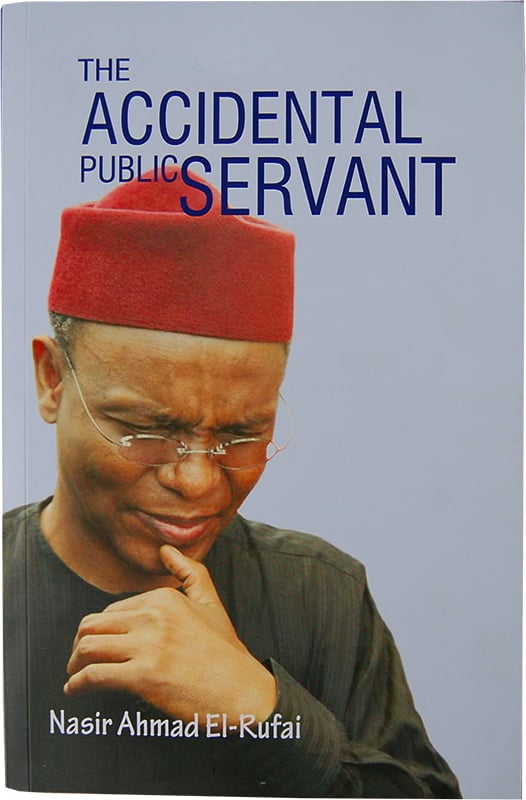NASIR EL-RUFAI’S ACCIDENTAL PUBLIC SERVANT is being presented to the public this morning at the Shehu Musa Yar’adua Centre in Abuja.
The snippets newspapers have published from the book give an insight into the frightening candour the author has become known for. When I read the excerpt DAILY TRUST published last Monday, I spoke with Nasir who was on the road between Kano and Abuja and I did say that he had let lose a cat amongst the pigeons of Nigeria’s political society. It was a description that made him laugh very heartily!
It can safely be assumed that we will get a far more compelling and truthful account of the Nigerian public space from Nasir’s book, than a lot of the hagiographical pieces we have been inundated with in recent years.
If there is one thing people can agree about Nasir El-Rufai, it is that he is a man of strong convictions and we do not have to agree with his political choices or even his decisons, to respect his standpoint and the genuineness of his conviction.
As Minister of the FCT, I wrote several critical pieces against him, these were especially against his rightwing ideological positions and his total acceptance of the neoliberal capitalist paradigm.
But even in doing those regular critiques, I always acknowledged his ability to get his job done; his devotion to whatever assignment he needs to carry out and his ability to build teams to achieve his objectives.
These were uncommon attitudes in a Nigerian public space ridden with incompetence, time-serving, sycophancy and outright corruption. Nasir El-Rufai’s tenure at the FCT was particularly controversial from different directions, but he was the first minister that confronted head-on the multi-faceted problems of the FCT, using the tools of modernity and intellect and we all saw what the FCT became under him.
Abuja became a truly modern city where people were obliged to obey basic rules.
El-Rufai out of power, has engaged with the public space using his remarkable intellectual ability to enlighten us about public policy, often proffering radical solutions that, if implemented, will see Nigeria advancing faster along the route of capitalist modernity.
And as a socialist, I can accept that it is better to rapidly build our nation’s productive forces as fast as such ideologists of capitalist modernity like Nasir want, than to remain in the rot which envelopes us today.
Nasir El-Rufai is one of the emblematic representatives of my generation; a generation which got a lot from Nigeria, in those early decades of independence: good education; welfare state packages and a lot of hope about life.
He has given to his country as best he can, and his new book is a product of that engagement with our public space. It should make compelling reading, allowing us an aperture into the workings of the mind of a brilliant, diminutive man, who his friends fondly call GIANT!


